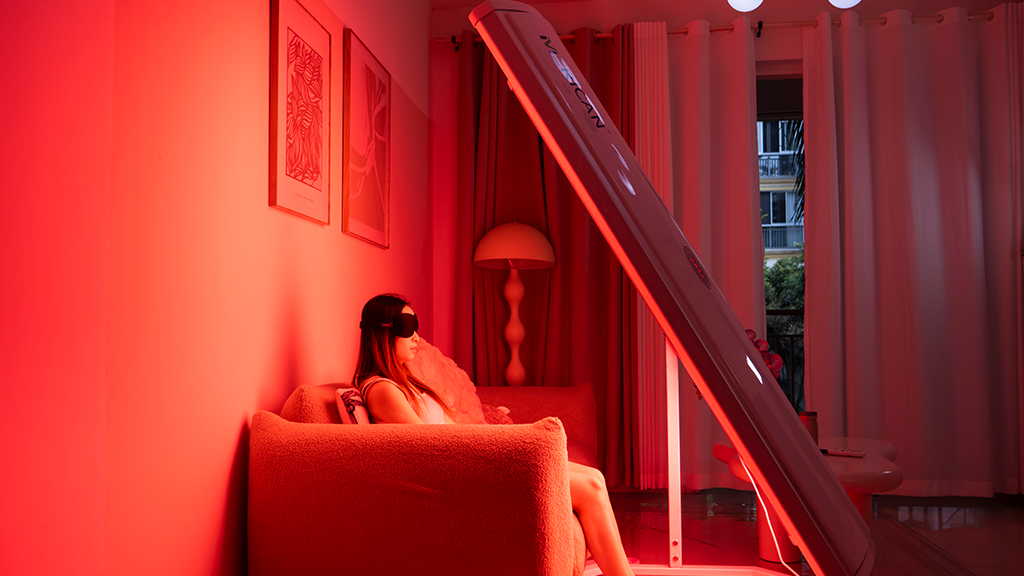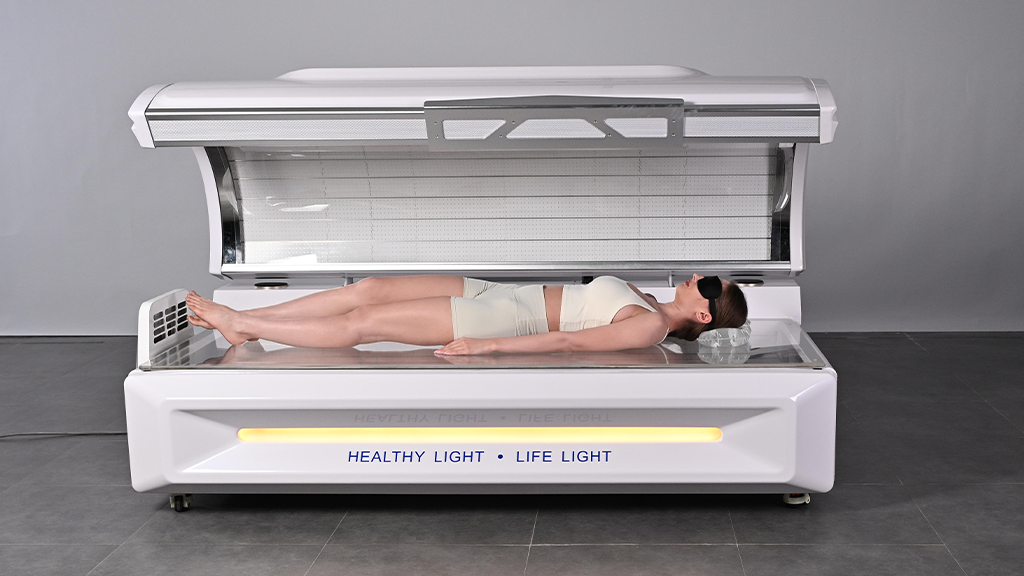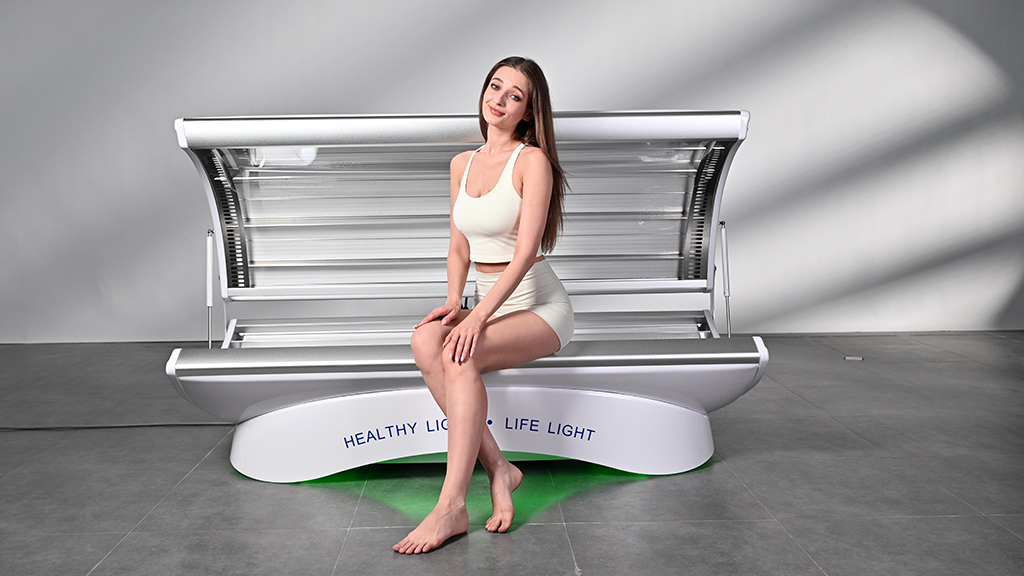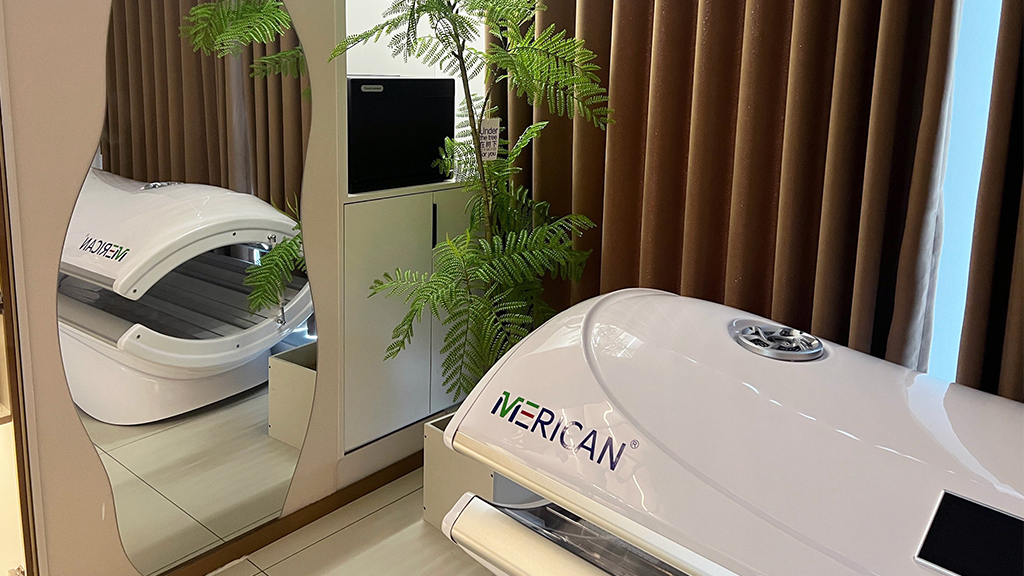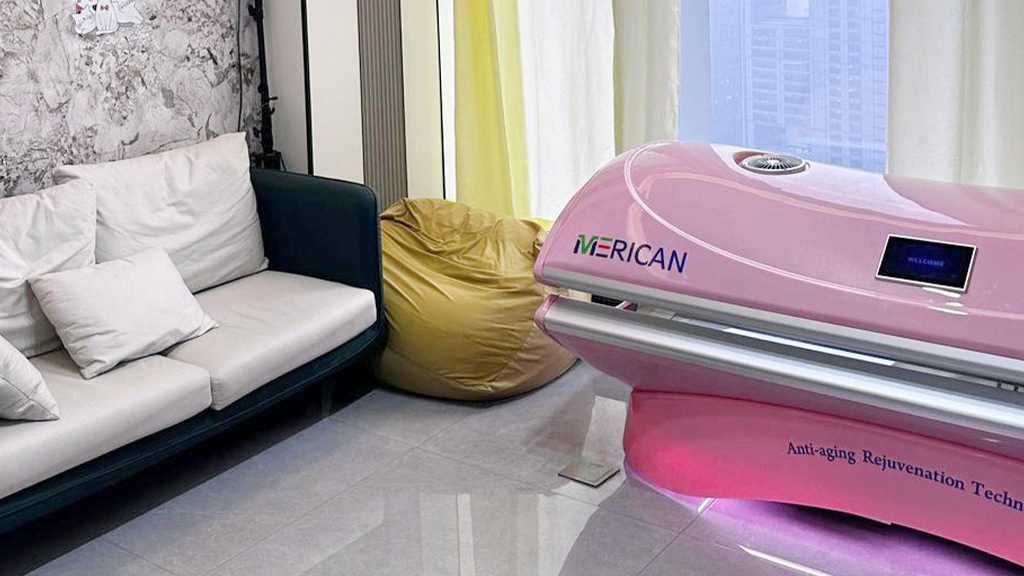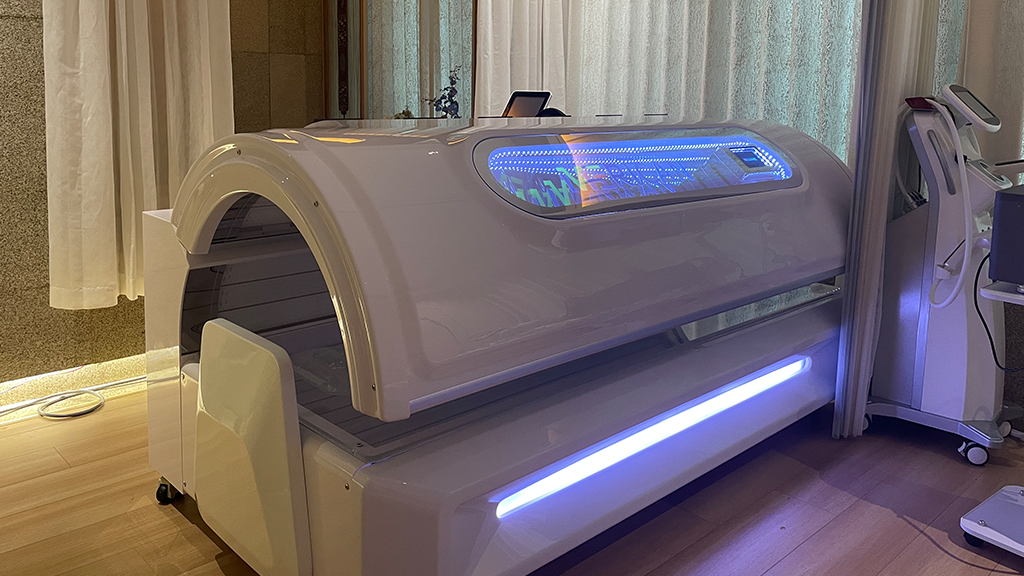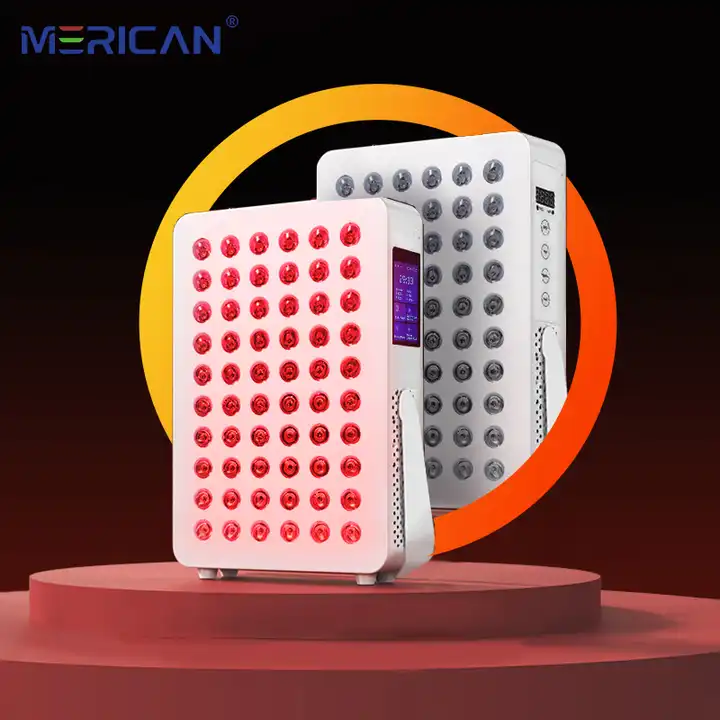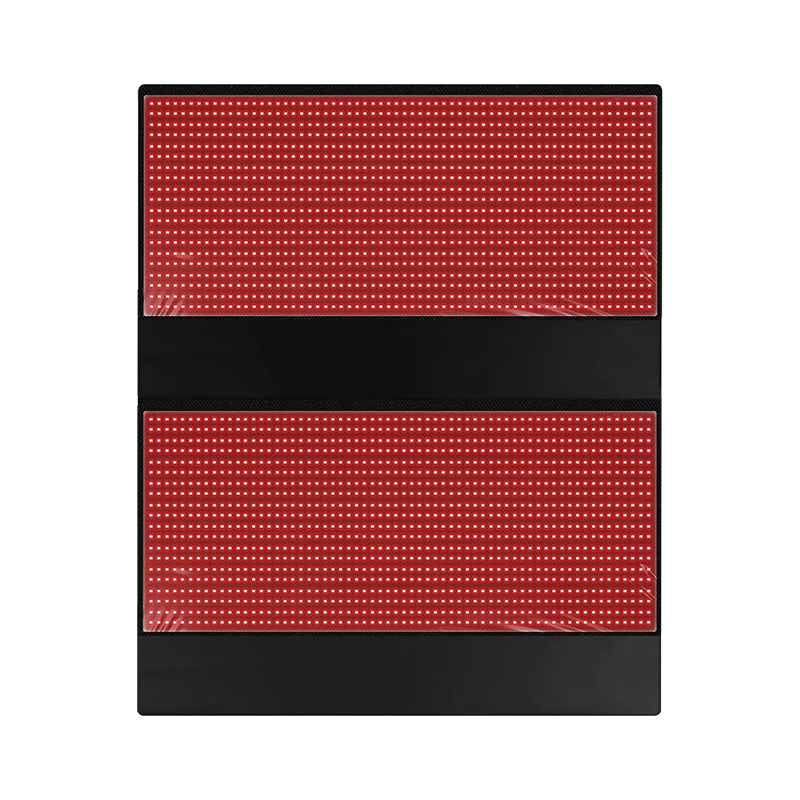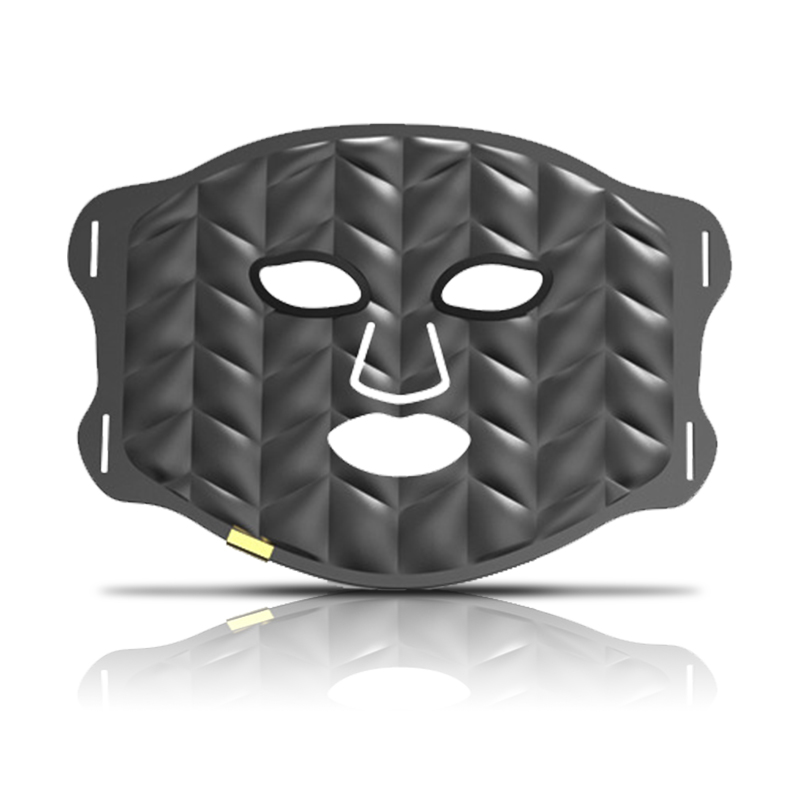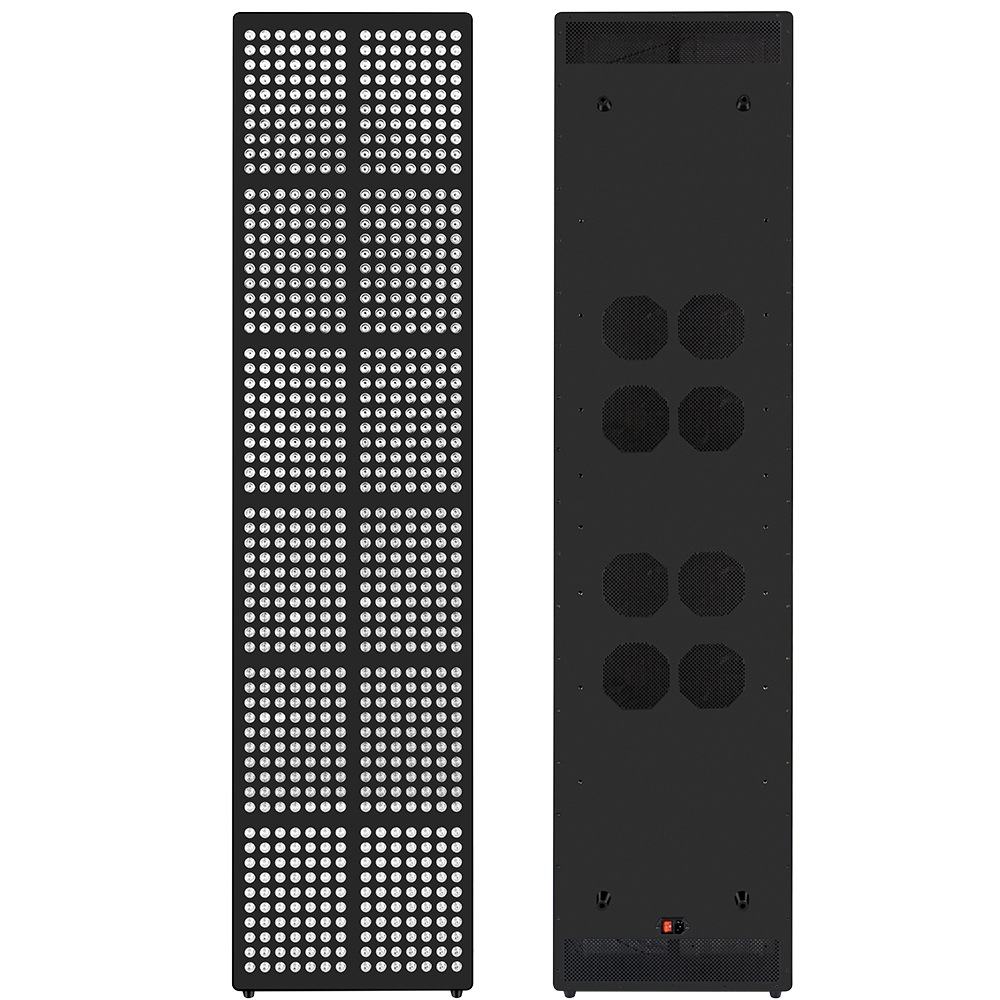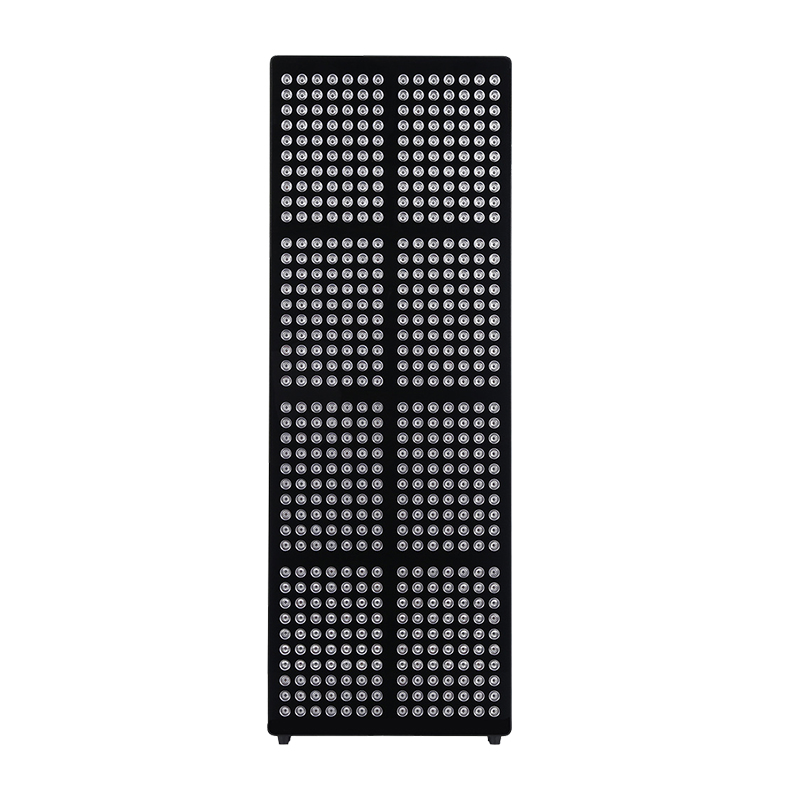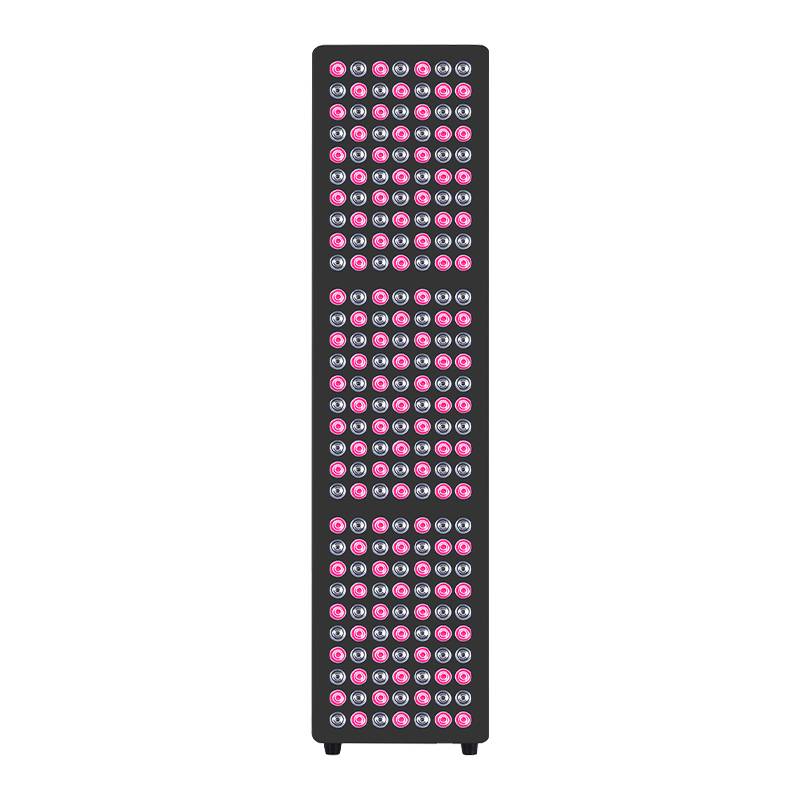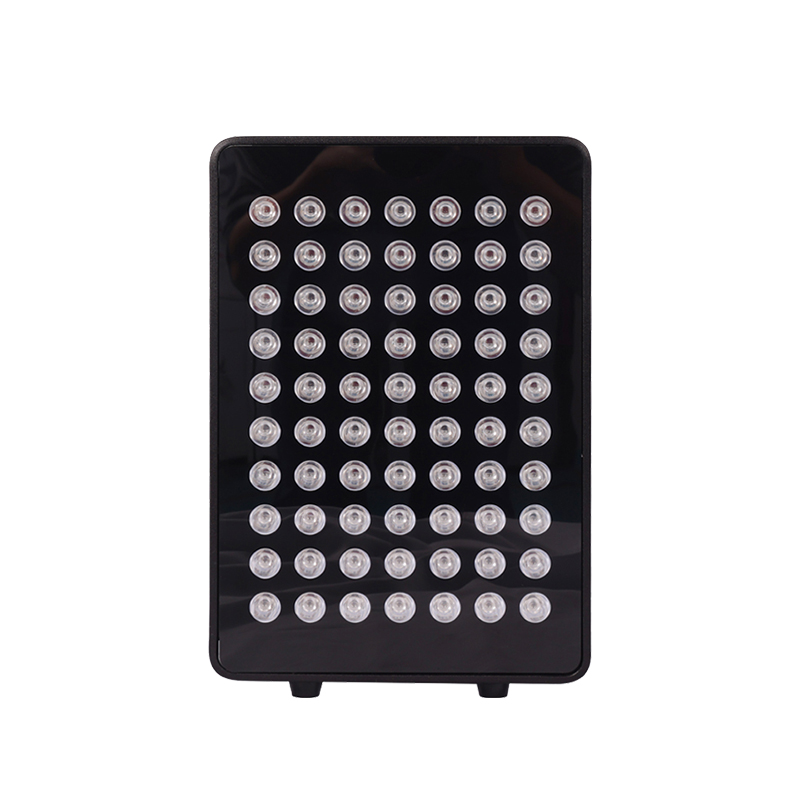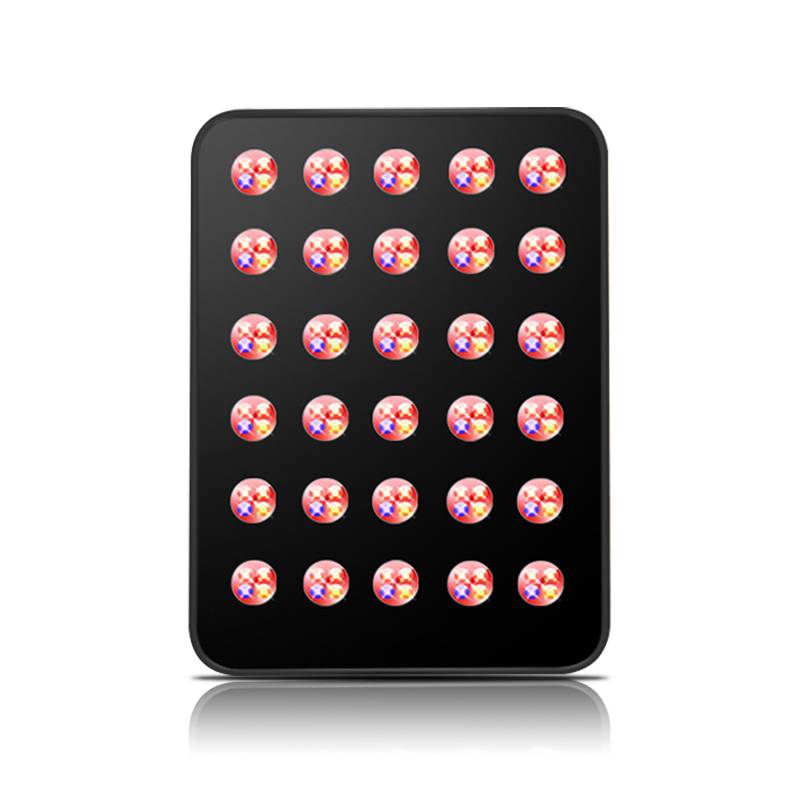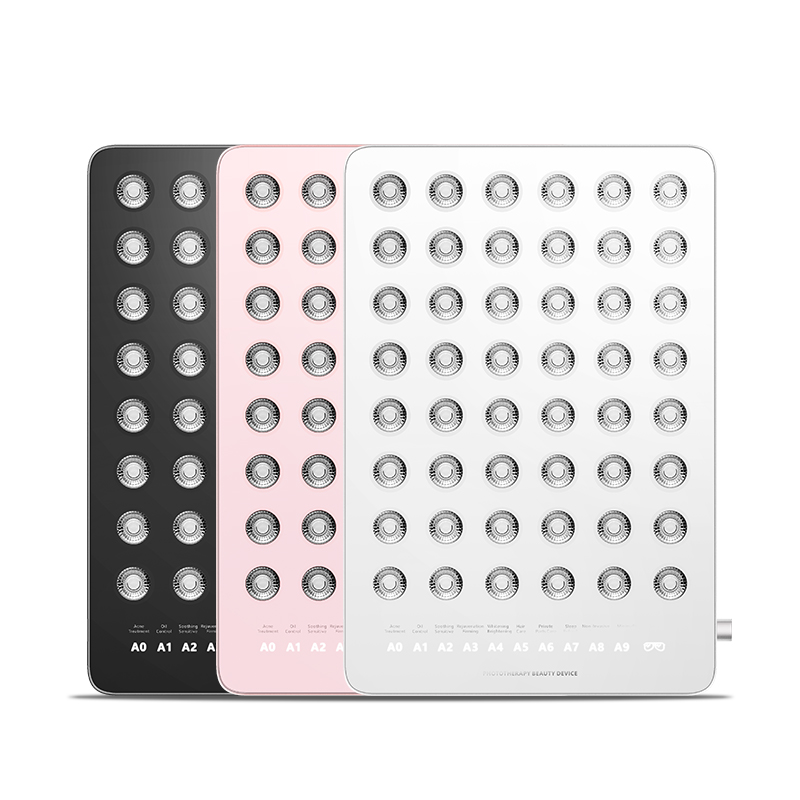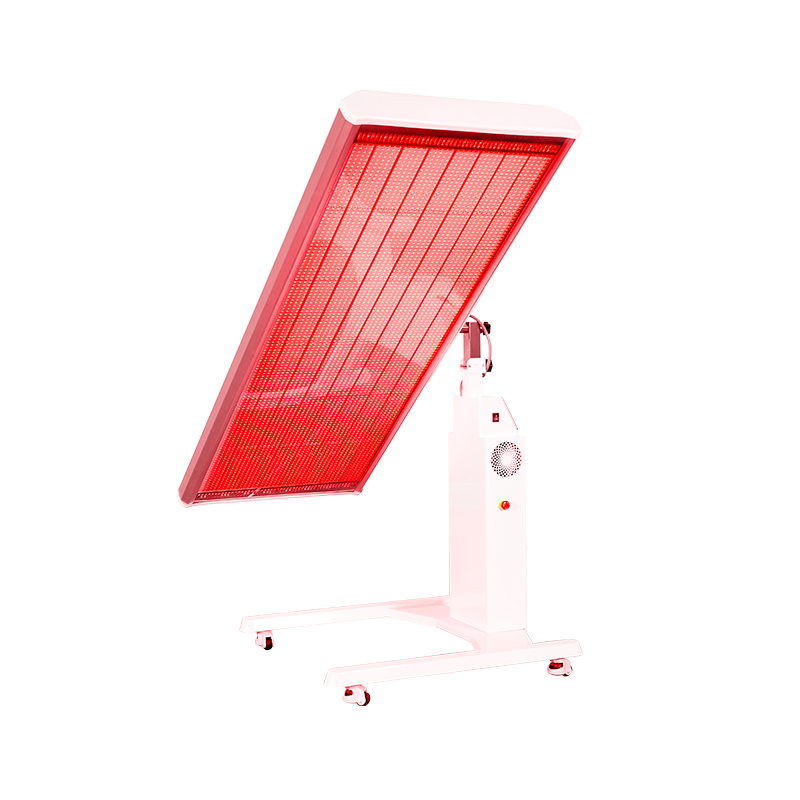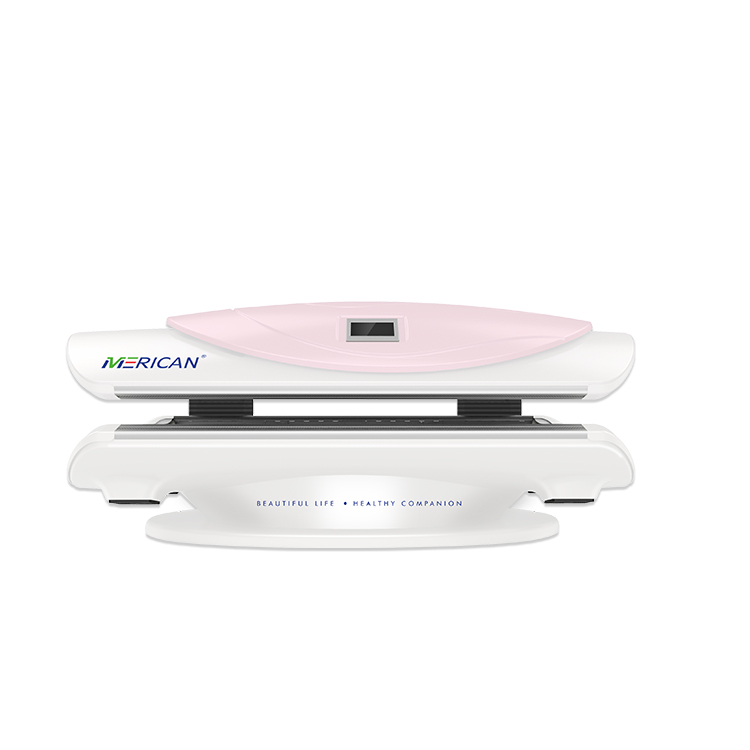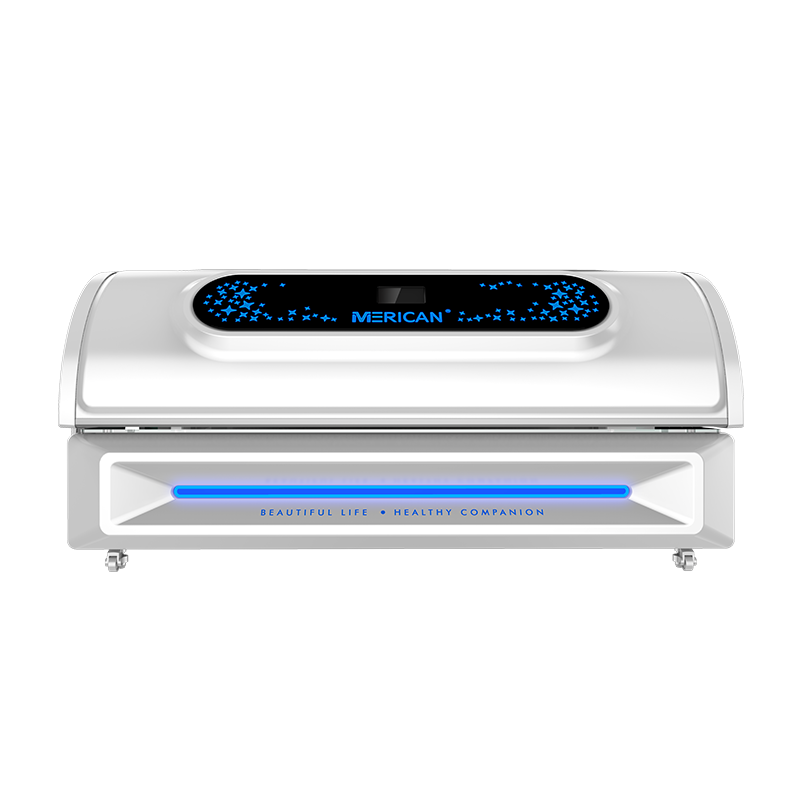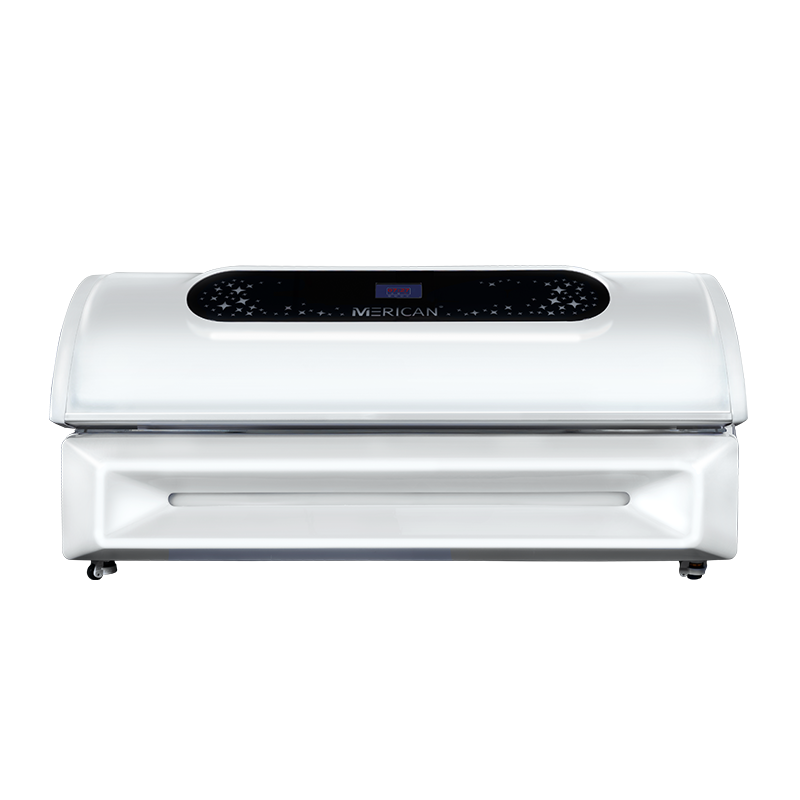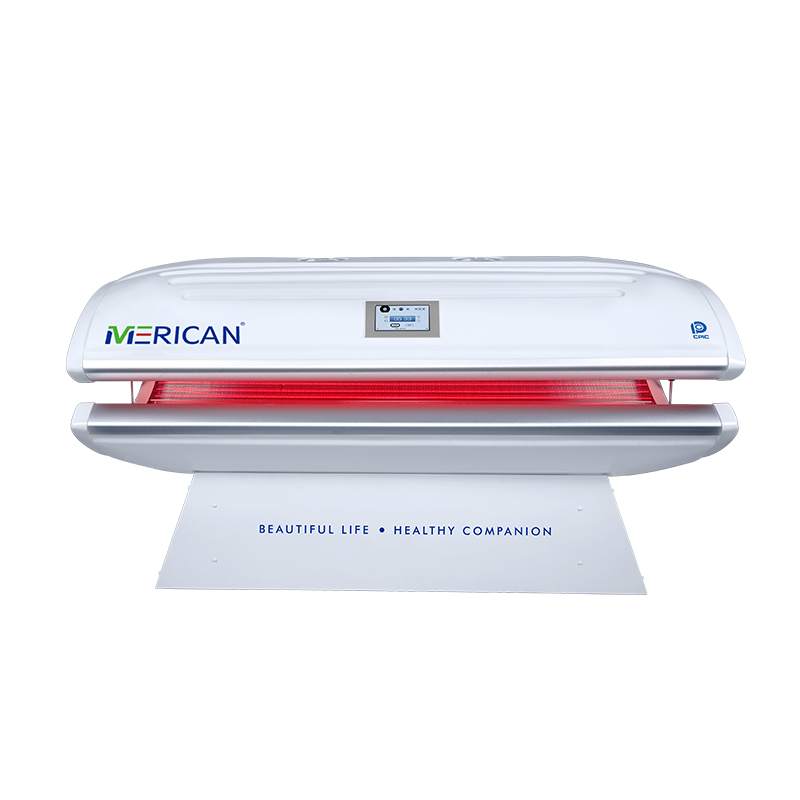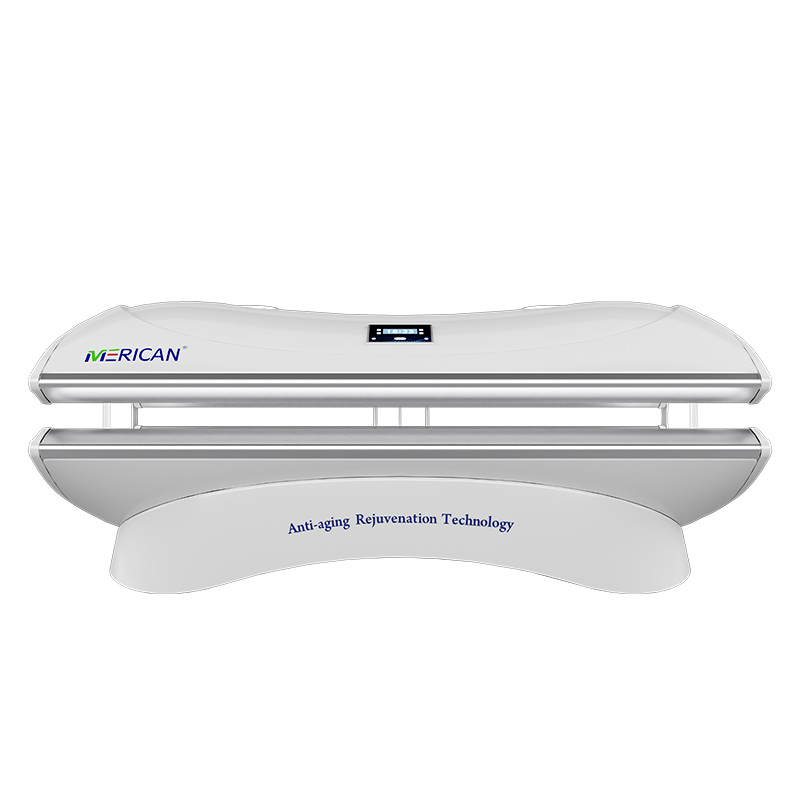Wenn Sie im Internet nach innovativen Möglichkeiten zur Förderung Ihrer Gesundheit gesucht haben, Sie sind vielleicht über die Begeisterung rund um Rotlichttherapiebetten gestolpert. Diese faszinierenden Geräte versprechen alles von strahlender Haut bis hin zu verbesserter Muskelregeneration, Und das alles, indem man einfach im roten Licht badet. Aber was genau ist ein Rotlichtbett?, und wird es dem Hype wirklich gerecht?? Lassen Sie uns herausfinden, was ein Rotlichttherapiebett ist und welche Vorteile es hat.
Was ist Rotlichttherapie??

Bevor wir uns mit den Einzelheiten der Rotlichttherapiebetten befassen, Es ist wichtig, die Grundlagen der Rotlichttherapie zu verstehen (RLT). Also, Was ist das? In einfachen Worten, RLT ist eine Behandlung, bei der rotes Licht niedriger Wellenlängen in die Haut eindringt. Im Gegensatz zu schädlichen UV-Strahlen, Bei diesem Licht geht es nicht um Bräunung, sondern um Heilung und Verjüngung. Ursprünglich von der NASA entdeckt, um den Pflanzenanbau im Weltraum zu unterstützen, Die Rotlichttherapie hat sich im Laufe der Jahre weiterentwickelt. Es wird heute in verschiedenen medizinischen und kosmetischen Bereichen eingesetzt, dank seiner Fähigkeit, Gewebe zu reparieren, Entzündungen reduzieren, und steigern sogar die Kollagenproduktion.
Wie die Rotlichttherapie funktioniert?
Also, Wie wirkt sich die Beleuchtung Ihrer Haut auf all diese gesundheitlichen Vorteile aus?? Die Magie liegt in der Art und Weise, wie rotes Licht mit Ihrem Körper interagiert. Wenn das Licht Ihre Haut durchdringt, es erreicht Ihre Zellen’ Mitochondrien, werden oft als Kraftwerke der Zelle bezeichnet. Dieses Licht regt die Mitochondrien an, was wiederum mehr Energie produziert. Stellen Sie sich das so vor, als würden Sie Ihren Zellen einen kleinen Koffeinschub geben, Dadurch können sie effizienter arbeiten. Dieser Energieschub hilft Ihrem Körper, Schäden zu reparieren, Entzündungen reduzieren, und verjüngt die Hautzellen. Im Wesentlichen, Die Rotlichttherapie regt Ihren Körper zur Selbstheilung an – cool, Rechts?
Was ist ein Rotlichttherapiebett??
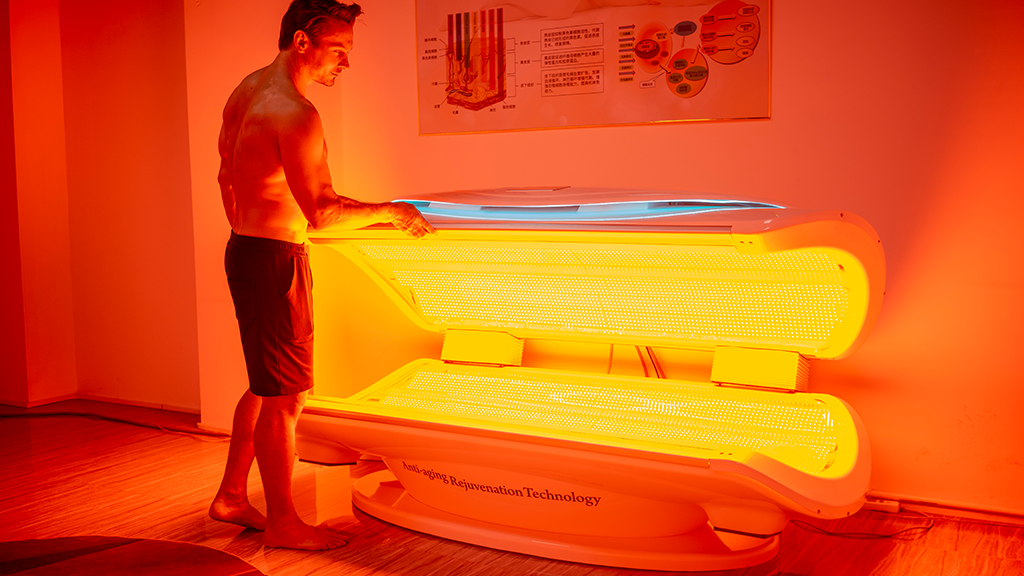
Nachdem wir uns nun mit den Grundlagen befasst haben, Kommen wir zum Star der Show: Die Rotlichttherapiebett. Also, Was ist ein Rotlichtbett?? Stellen Sie sich ein Solarium vor, aber anstatt Ihnen einen sonnenverwöhnten Glanz zu verleihen, es taucht dich in heilendes rotes Licht. Diese Betten sind so konzipiert, dass sie den ganzen Körper einer Rotlichttherapie aussetzen können, Dadurch ist es bequem, größere Bereiche auf einmal anzuvisieren. Ob Sie Muskelkater lindern möchten, Verbessern Sie Ihre Haut, oder steigern Sie einfach Ihr allgemeines Wohlbefinden, Das Liegen in einem Rotlichtbett kann diese Vorteile in einer einzigen Sitzung erzielen.
Mechanismus des Rotlichttherapiebetts
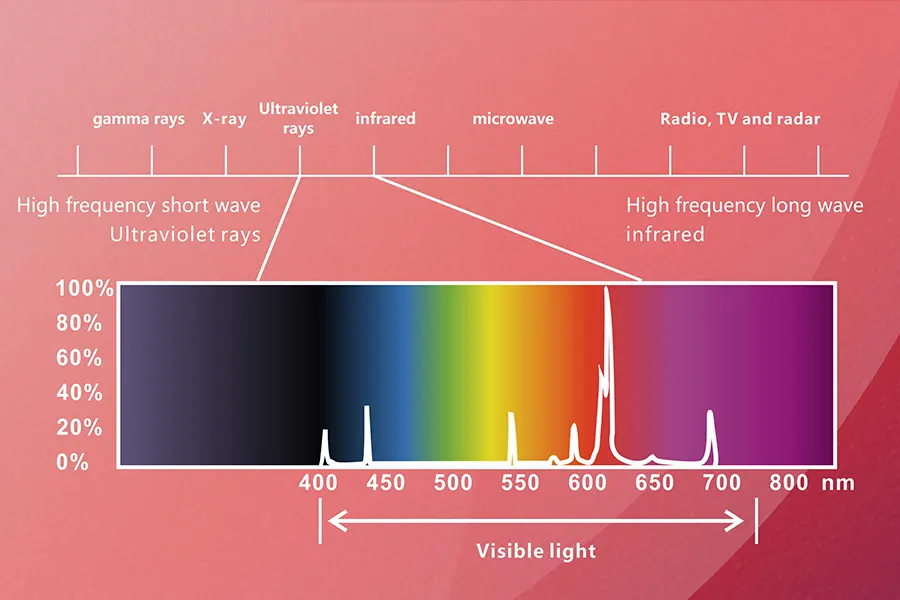
Wellenlängen und Lichtspektrum
Nicht jedes Licht ist gleich. Die Wirksamkeit eines Rotlichtbettes hängt maßgeblich von den Wellenlängen ab, die es aussendet. Typischerweise, Diese LED-Therapiebetten nutzen Licht in der 600 Zu 900 Nanometerbereich, welches optimal in die Haut eindringt und die Zellaktivität stimuliert. Dieses Sortiment umfasst sowohl rotes als auch nahinfrarotes Licht, Jedes bietet einzigartige Vorteile – rotes Licht eignet sich hervorragend für oberflächliche Behandlungen wie Hautverjüngung, während Nahinfrarotlicht tiefer in Muskeln und Gelenke eindringt.
Wie rotes Licht die Haut durchdringt?
Sie fragen sich vielleicht, Wie dringt Licht in Ihre Haut ein, ohne Schäden zu verursachen?? Die Antwort liegt in der nichtinvasiven Natur von rotem und nahinfrarotem Licht. Im Gegensatz zu UV-Strahlen, die Ihre Haut verbrennen und schädigen können, Rotes Licht dringt sanft bis zu einigen Millimetern vor, Zielt auf Zellen unter der Oberfläche, ohne Schaden anzurichten. Es ist, als würde man die Wärme der Sonne genießen, ohne Gefahr zu laufen, sich zu verbrennen.
Zelluläre Auswirkungen: Mitochondriale Stimulation
Auf zellulärer Ebene, Die Rotlichttherapie stimuliert die Mitochondrien. Wenn diese “Kraftpakete” absorbieren rotes Licht, Sie werden effizienter bei der Produktion von Adenosintriphosphat (ATP), die Energiewährung der Zelle. Mehr ATP bedeutet mehr Energie für die Zellen, um lebenswichtige Funktionen wie die Reparatur von Gewebe auszuführen, Entzündungen reduzieren, und Förderung der allgemeinen Zellgesundheit.
Steigerung der Kollagenproduktion
Kollagen ist das Protein, das dafür sorgt, dass Ihre Haut jung und straff aussieht, aber wenn wir älter werden, Unser Körper produziert weniger davon. Eine Rotlichttherapie kann helfen, diesen Prozess umzukehren, indem sie Fibroblasten stimuliert, die Zellen, die für die Kollagenproduktion verantwortlich sind. Regelmäßige Sitzungen im Rotlichtbett können zu einer Glättung führen, für eine jugendlichere Haut im Laufe der Zeit.
So verwenden Sie ein Rotlichttherapiebett?
Wie oft sollte RLT verwendet werden??
Bei der Rotlichttherapie kommt es auf Konsistenz an. Für die meisten Menschen, das Bett benutzen 2 Zu 3 Mal pro Woche erzielt man die besten Ergebnisse. Typischerweise, Die Sitzungen dauern zwischen 10 Zu 20 Minuten, abhängig von Ihren Zielen. Zur Hautverjüngung, kürzer, häufigere Sitzungen (um 3 Zu 5 Mal pro Woche) werden empfohlen. Für eine tiefere Gewebeheilung oder Muskelregeneration, längere Sitzungen seltener (2 Zu 3 Mal pro Woche) kann effektiver sein.
Vor- und Nachsorge
Um die Vorteile Ihres Rotlichttherapiebetts zu maximieren, Es ist wichtig, einige einfache Vorbereitungen zu treffen- und Pflegeschritte nach der Behandlung. Vor Ihrer Sitzung, Stellen Sie sicher, dass Ihre Haut sauber und frei von Lotionen oder Ölen ist, da diese das Licht blockieren können. Nach Ihrer Sitzung, Befeuchten Sie Ihre Haut mit einer Feuchtigkeitscreme, um die Vorteile zu sichern und Ihrer Haut bei der Regeneration zu helfen.
Kombination der Rotlichttherapie mit anderen Behandlungen
Die Rotlichttherapie ist vielseitig einsetzbar und lässt sich problemlos mit anderen Behandlungen kombinieren. Zum Beispiel, Sie können es zusammen mit topischen Hautpflegebehandlungen verwenden, um deren Absorption und Wirksamkeit zu verbessern. Es ist auch eine großartige Ergänzung zur Physiotherapie zur Muskelregeneration, hilft, Schmerzen zu lindern und die Heilung zu beschleunigen.
Gesundheits- und Wellnessvorteile von Rotlichttherapiebetten
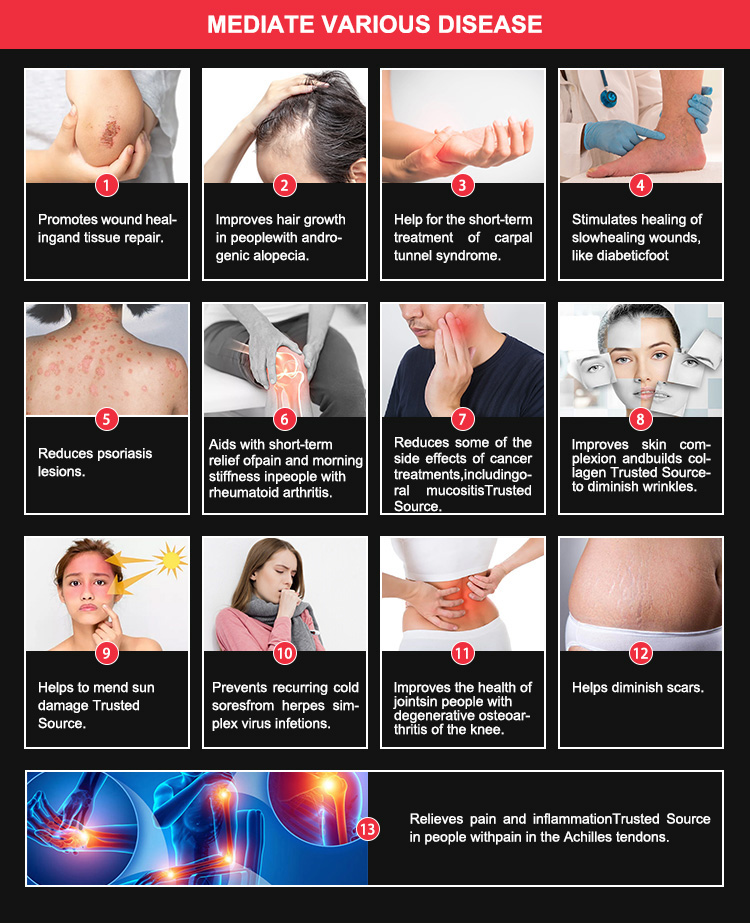
Hautgesundheit und Verjüngung
Ihre Haut ist Ihr größtes Organ, und es ist anstrengend, den Elementen täglich ausgesetzt zu sein. Rotlichttherapiebetten können zur Verjüngung Ihrer Haut beitragen, indem sie die Kollagenproduktion steigern und die Durchblutung verbessern.
Eine der beliebtesten Anwendungen der Rotlichttherapie ist ihre Anti-Aging-Wirkung. Die erhöhte Kollagenproduktion hilft Reduzieren Sie das Auftreten von Falten und feinen Linien, verleiht Ihrer Haut eine glattere Wirkung, jugendlicheres Aussehen.
Wenn Sie damit zu kämpfen haben Akne oder Narbenbildung, Eine Rotlichttherapie kann helfen, indem sie Entzündungen reduziert und eine schnellere Heilung von geschädigtem Hautgewebe fördert. Es ist eine Selbstverständlichkeit, nicht-invasive Methode zur Aufhellung Ihres Teints.
Schmerzlinderung und Entzündungsreduktion
Leben mit chronischen Schmerzen oder Entzündungen? Rotlichttherapiebetten können Linderung verschaffen, indem sie Entzündungen auf zellulärer Ebene reduzieren. Die erhöhte Energieproduktion in den Zellen hilft Ihrem Körper, Schmerzen zu bekämpfen und fördert eine schnellere Genesung.
Muskelregeneration und sportliche Leistung
Sportler greifen zunehmend auf Rotlichttherapie zurück, um ihre Leistung zu steigern und die Genesung zu beschleunigen. Das Licht dringt tief in das Muskelgewebe ein, Es hilft, Schmerzen zu lindern und die Ausdauer zu verbessern, indem es die Durchblutung erhöht und oxidativen Stress reduziert.
Unterstützung des Immunsystems
Ihr Immunsystem ist der Abwehrmechanismus Ihres Körpers, Und es ist von entscheidender Bedeutung, es stark zu halten. Es hat sich gezeigt, dass die Rotlichttherapie die Immunfunktion verbessert, indem sie die Produktion von Immunzellen stimuliert und oxidativen Stress reduziert.
Vorteile für die psychische Gesundheit: Verbesserung der Stimmung und des Schlafes
Sie haben mit Stimmungsschwankungen oder Schlafproblemen zu kämpfen? Eine Rotlichttherapie kann helfen, indem sie die Melatoninproduktion Ihres Körpers reguliert, das für den Schlaf verantwortliche Hormon. Regelmäßige Sitzungen können die Schlafqualität verbessern und Ihre Stimmung stabilisieren, Sie fühlen sich ausgeglichener und ausgeruhter.
Spezifische Anwendungsfälle für Rotlichttherapiebetten
Rotlichttherapie für Anti-Aging
Altern ist unvermeidlich, Eine Rotlichttherapie kann jedoch helfen, den Prozess zu verlangsamen. Durch die Steigerung der Kollagenproduktion und die Verbesserung der Hautelastizität, Durch regelmäßige Sitzungen im Rotlichtbett sieht Ihre Haut jünger aus, länger.
Rotlichttherapie zur Gewichtsreduktion
Obwohl es kein Wundermittel ist, Die Rotlichttherapie kann die Bemühungen zur Gewichtsreduktion unterstützen, indem sie Entzündungen reduziert und den Stoffwechsel verbessert. Kombiniert mit einer gesunden Ernährung und regelmäßiger Bewegung, Es kann Ihnen helfen, die hartnäckigen Pfunde loszuwerden.
Rotlichttherapie für Haarwachstum
Umgang mit schütterem Haar? Eine Rotlichttherapie könnte die Antwort sein. Die erhöhte Durchblutung der Kopfhaut kann die Haarfollikel stimulieren und neues Wachstum fördern, bietet eine natürliche Lösung gegen Haarausfall.
Rotlichttherapie bei chronischen Erkrankungen (z.B., Arthritis)
Wenn Sie an chronischen Erkrankungen wie Arthritis leiden, Eine Rotlichttherapie kann Linderung verschaffen, indem sie Entzündungen reduziert und die Gesundheit der Gelenke fördert. Es ist eine Selbstverständlichkeit, medikamentenfreie Möglichkeit, Schmerzen zu lindern und die Mobilität zu verbessern.
Vergleich von Rotlichttherapiebetten mit anderen RLT-Geräten
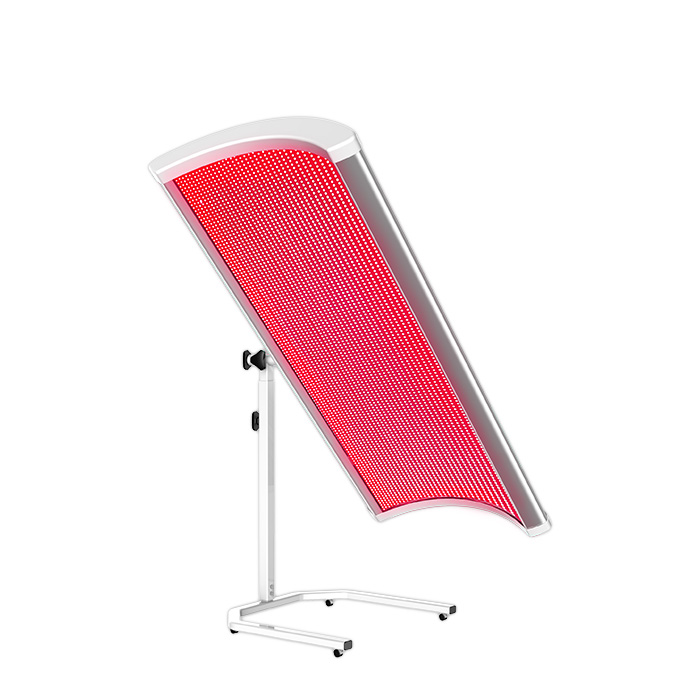
Rotlichttherapiebett vs. Handheld-Geräte
Handgeräte eignen sich hervorragend zum Anvisieren kleinerer Bereiche, aber wenn Sie auf der Suche nach Vorteilen für den ganzen Körper sind, Ein Rotlichtbett ist der richtige Weg. Es bietet umfassende Abdeckung, Damit ist es ideal für Menschen mit weit verbreiteten Schmerzen oder Hautproblemen.
Rotlichttherapiebett vs. Gesichtsmasken
Gesichtsmasken sind bei Hautbehandlungen beliebt, aber sie bedecken nur dein Gesicht. Ein Rotlichttherapiebett, auf der anderen Seite, sorgt für eine Ganzkörperbelichtung, Dies macht es zu einer vielseitigeren Option für diejenigen, die mehrere Probleme gleichzeitig lösen möchten.
Rotlichttherapiebett vs. Panels
Rotlichttherapieplatten sind eine gute Mittelwegoption, Bietet mehr Abdeckung als tragbare Geräte, aber weniger als ein komplettes Bett. Jedoch, wenn Sie die effizienteste und bequemste Behandlung wünschen, Ein Rotlichtbett ist immer noch die erste Wahl.
Sicherheit und Nebenwirkungen
Ist die Rotlichttherapie sicher?? Einer der besten Aspekte der Rotlichttherapie ist ihr Sicherheitsprofil. Es ist nicht-invasiv, verwendet keine schädlichen UV-Strahlen, und hat minimale Nebenwirkungen. Die meisten Menschen können es sicher und ohne große Beschwerden verwenden.
Obwohl selten, Bei manchen Menschen können leichte Nebenwirkungen wie vorübergehende Rötung oder Reizung auftreten, vor allem bei Überbeanspruchung. Es ist immer eine gute Idee, mit kürzeren Sitzungen zu beginnen und die Dauer schrittweise zu erhöhen, wenn sich Ihr Körper daran gewöhnt.
Wer sollte eine Rotlichttherapie vermeiden?? Obwohl im Allgemeinen sicher, Rotlichttherapie ist nicht jedermanns Sache. Schwangere Frauen, Personen mit bestimmten Erkrankungen, oder diejenigen, die photosensibilisierende Medikamente einnehmen, sollten vor Beginn der Behandlung einen Arzt konsultieren.
Faktoren, die beim Kauf eines Rotlichttherapiebetts zu berücksichtigen sind
Hersteller- oder Markenreputation
Beim Kauf von Rotlichttherapiebetten zum Verkauf, Nicht alle Produkte auf dem Markt sind gleich. Der Ruf des Herstellers spielt eine entscheidende Rolle dabei, sicherzustellen, dass Sie eine hohe Qualität erhalten, zuverlässiges Gerät. Etablierte Marken mit einer soliden Erfolgsbilanz investieren eher in Forschung und Entwicklung, Dies führt zu wirksameren und sichereren Produkten. Zusätzlich, ein renommierter Hersteller von Rotlichttherapiebetten ist oft ein Synonym für exzellenten Kundenservice, Dies kann von unschätzbarem Wert sein, wenn Sie nach dem Kauf auf Probleme stoßen oder Fragen haben.
Wellenlänge des Lichts
Die Wirksamkeit der Rotlichttherapie hängt stark von den Wellenlängen des vom Bett emittierten Lichts ab. Es ist wichtig, ein Gerät auszuwählen, das im optimalen Wellenlängenbereich arbeitet, typischerweise zwischen 600 Und 900 Nanometer. Es ist wissenschaftlich erwiesen, dass diese Serie effektiv in die Haut eindringt, dringt tief in das Gewebe ein, um zelluläre Prozesse zu stimulieren, die zur Heilung beitragen, Verjüngung, und Schmerzlinderung. Unterschiedliche Wellenlängen zielen auf unterschiedliche Tiefen und Gewebearten ab, Ein Bett, das dieses Spektrum abdeckt, gewährleistet also eine umfassendere Behandlung.
Lichtintensität (Bestrahlungsstärke)
Lichtintensität, oder Bestrahlungsstärke, ist ein Schlüsselfaktor für die Wirksamkeit der Rotlichttherapie. Höhere Bestrahlungsstärken führen dazu, dass das Licht tiefer in die Haut eindringen kann, Es verbessert seine Fähigkeit, die Mitochondrien in Ihren Zellen zu erreichen und mit Energie zu versorgen. Diese tiefere Penetration führt zu wirksameren Behandlungen, Möglicherweise reduzieren Sie die erforderliche Zeit pro Sitzung und die Anzahl der Sitzungen, die erforderlich sind, um die gewünschten Ergebnisse zu erzielen. Es ist wichtig, ein Rotlichttherapiebett auszuwählen, das eine ausreichende Leistungsabgabe bietet, um Ihren Behandlungszielen gerecht zu werden, ob es sich dabei um eine Hautverjüngung handelt, Schmerzmanagement, oder Muskelregeneration.
Behandlungsbereich
Bei der Entscheidung für ein Rotlichttherapiebett, Die Größe des Behandlungsbereichs ist ein entscheidender Faktor. Wenn es Ihr Ziel ist, Ihren gesamten Körper zu behandeln, Ein Ganzkörper-Rotlichtbett bietet die umfassendste Abdeckung, Dies ermöglicht eine gleichmäßigere und effizientere Behandlung. Jedoch, Ganzkörperbetten benötigen mehr Platz und können im Vergleich zu kleineren Geräten, die auf bestimmte Bereiche abzielen, eine größere Investition darstellen. Auf der anderen Seite, wenn Sie nur lokale Probleme angehen müssen, wie Gelenkschmerzen oder Gesichtshautverjüngung, Ein kleineres Gerät könnte praktischer und kostengünstiger sein.
Verarbeitungsqualität und Haltbarkeit
Der Kauf eines Rotlichttherapiebetts ist eine erhebliche Investition, Daher ist es wichtig, ein Gerät zu wählen, das auf Langlebigkeit ausgelegt ist. Hochwertige Materialien und eine robuste Bauweise sind für die Langlebigkeit des Bettes unerlässlich, vor allem, wenn es häufig verwendet wird. Ein gut gebautes Bett sollte einer regelmäßigen Nutzung standhalten, ohne Kompromisse bei Leistung oder Sicherheit einzugehen. Zusätzlich, Ein langlebiges Gerät verringert die Wahrscheinlichkeit von Fehlfunktionen oder die Notwendigkeit von Reparaturen, Sparen Sie auf lange Sicht Geld und Ärger.
Kosten und Erschwinglichkeit
Dabei ist der Preis eines Rotlichttherapiebetts ein wichtiger Faktor, Ebenso wichtig ist es, den Wert zu berücksichtigen, den es bietet. Diese Betten können eine erhebliche Investition sein, Sie sind aber auch eine Investition in Ihre langfristige Gesundheit und Ihr Wohlbefinden. Der Schlüssel zu einem klugen Kauf liegt darin, Ihr Budget mit den Funktionen und Vorteilen der verschiedenen Modelle in Einklang zu bringen. Achten Sie nicht nur auf die Vorabkosten, sondern auch auf die Haltbarkeit des Bettes, Wirksamkeit, und die Qualität des Kundensupports durch den Hersteller. Es lohnt sich oft, etwas mehr für ein Produkt zu bezahlen, das eine bessere Leistung und Langlebigkeit bietet, letztendlich im Laufe der Zeit mehr Wert bieten.
Abschluss
Rotlichttherapiebetten sind eine spannende Sache, wissenschaftlich fundierte Möglichkeit, Ihre Gesundheit und Ihr Wohlbefinden bequem von zu Hause aus zu verbessern. Ob Sie Ihre Haut verjüngen möchten, Schmerzen lindern, oder stärken Sie Ihr Immunsystem, Diese innovativen Geräte bieten eine Vielzahl von Vorteilen. Wie bei jedem Wellness-Tool, Es ist wichtig, dass Sie recherchieren und ein Produkt auswählen, das Ihren Bedürfnissen und Ihrem Lebensstil entspricht. Also, Sind Sie bereit, die Rotlichttherapie auszuprobieren?? Die Zukunft Ihrer Gesundheit könnte nur eine Sitzung entfernt sein.
FAQs zum Rotlichttherapiebett
1. Wie lange dauert es, bis Ergebnisse auf einem Rotlichttherapiebett sichtbar sind??
Die meisten Menschen sehen bereits nach wenigen Wochen nach regelmäßiger Anwendung erste Ergebnisse, Dies kann jedoch je nach der behandelten spezifischen Erkrankung variieren.
2. Kann ich jeden Tag ein Rotlichttherapiebett nutzen??
Obwohl es im Allgemeinen sicher ist, regelmäßig ein Rotlichttherapiebett zu verwenden, Eine tägliche Anwendung ist möglicherweise nicht erforderlich. Die meisten Experten empfehlen 2 Zu 3 Sitzungen pro Woche für optimale Ergebnisse.
3. Ist die Rotlichttherapie schmerzhaft??
NEIN, Die Rotlichttherapie ist schmerzlos und nicht-invasiv. Möglicherweise spüren Sie während der Sitzung eine sanfte Wärme, aber normalerweise ist es sehr entspannend.
4. Muss ich während der Rotlichttherapie eine Schutzbrille tragen?j?
Ja, Es empfiehlt sich, eine Schutzbrille zu tragen, um Ihre Augen vor dem intensiven Licht zu schützen, vor allem bei längeren Sitzungen.
5. Sind Rotlichttherapiebetten für alle Hauttypen sicher??
Ja, Die Rotlichttherapie ist für alle Hauttypen sicher, Es ist jedoch immer ratsam, mit kürzeren Sitzungen zu beginnen, um zu sehen, wie Ihre Haut reagiert.

